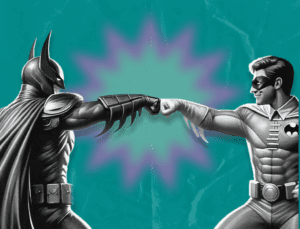Today I want to tell you three stories from my life. Nothing special. Only three stories.
This is how one of the most overwhelming speeches in the history of the business world began. It was from Steve Jobs, founder of Apple. He was invited to close the academic year at Stanford University in 2005. He went on like this:
“I dropped out of Reed College after the first six months, but then I kept hanging around there for another 18 months or so before I dropped out altogether. Why did I quit?
This started before I was born. My birth mother was a young, single student, and she decided to put me up for adoption. She was very clear that those who would adopt me would have to be university graduates, so everything was prepared so that at birth I would be adopted by a lawyer and his wife.
Only when I was born, they decided at the last moment that what they really wanted was a girl. So my parents, who were next on the waiting list, got a call at midnight asking, “We have a child we hadn’t planned; do you want it?”
“Of course,” they said.
Steve Jobs could have started his speech talking about the importance of universities, or provide data on computer sales in the world. But that speech would have been soon forgotten. Instead, he began in the best way one can begin: “I want to tell a story.”
Stories are remembered, data is not.
And this statement is the answer to our question. When we try to write from the technical or using the logical way we think (from the macro to the micro) we lose our audience. Because? easy, because we did not connect from the beginning.
If you start thinking about your favorite series or novel, review the structure. The great writers or screenwriters use suspense, a personal story, a paradox, etc.. to catch the attention:
Gabriel García Márquez in Chronicle of a Death Foretold begins with:
The day they were going to kill him, Santiago Nasar got up at 5:30 in the morning to wait for the ship on which the bishop was arriving.
La casa de Papel begins with the personal story of Tokyo, speaking in the first person:
My name is Tokio, but when this story began he didn’t call me that. This was me and this was the love of my life, the last time I saw him I left him in a pool of blood with his eyes open
Don’t worry, we know you’re not Gabriel García Marquez and neither should you. Each one tells the stories differently. Only in an ideal world can you have a perfect story, the important thing is to keep moving forward.
If you are starting to write you have to keep in mind what is interesting for you as a viewer and not as a writer. Simplify. focus. Ask yourself questions like why should you tell this story? . Recognize what attracts you to your favorite stories. Put it on paper. Dismiss the first thing that comes to mind, do not stay with the obvious.
There are many recommendations to start with, but the first thing is to write as such. The human brain loves to wander, and it’s much more common than you might think that in the creative process, we wander for a long time before getting to the important subject. So if we don’t put clear steps or impose a time limit, the process can take longer than necessary.
Write!
Some information that could be useful:
We leave you the video of Steve Jobs’s speech (if you need motivation, watch it! It’s only 15min)
In addition, we tell you that the initial excerpt of the speech was taken from the book Storytelling by Carlos Salas, a very good recommendation if you are looking for writing techniques and advice.

















